Iran, Russia, China censure US over impasse after Doha talks
Iran has censured the United States for refusing to abandon its wrong path after two-day negotiations in the Qatari capital to discuss how to remove sanctions on the Islamic Republic ended Wednesday.
Diplomats spoke at the UN Security Council Thursday, wringing their hands at perceived lack of progress after Iran and the European side said they will keep in touch "about the continuation of the route and the next stage of the talks".
Iran's UN Ambassador Majid Takht-Ravanchi, however, told the council that the latest talks were positive and the Islamic Republic is ready to strike an agreement, but everything depends on the US to make a decision.
"Iran has demanded verifiable and objective guarantees from the US that JCPOA will not be torpedoed again, that the US will not violate its obligations again, and that sanctions will not be re-imposed under other pretexts or designations," he told the council.
"We were sincere in the Doha talks that were serious and positive," he said. "Our negotiating team is ready to engage constructively again to conclude and reach a deal."
Chinese and Russian diplomats also faulted the United States, with Beijing's representative urging Washington to remove unilateral US sanctions on Iran.
"It is indeed the (Trump) policy of maximum pressure on Iran, which the US administration continues to embrace, that this is the main cause of all of the current problems plaguing the JCPOA," Russia’s Deputy UN Ambassador Dmitry Polyanskiy said.
China said the US must respond to Iran’s legitimate concerns and redress it past mistakes.
"We hope relevant parties will step up diplomatic efforts, find common ground on the outstanding issues at an early date and remove the obstacles to resuming full compliance," China's Foreign Ministry spokesman Zhao Lijian said in Beijing on Thursday.
"As the one who created the Iranian nuclear issue, the US needs to redress its mistakes, actively respond to the legitimate concerns of the Iranian side and work to achieve outcomes from negotiations on resuming compliance with the JCPOA at an early date," he added.
Former US President Donald Trump ditched the JCPOA, the acronym for the Joint Comprehensive Plan of Action, in 2018 and reimposed draconian sanctions on Iran’s economy. A year later, Tehran reacted by gradually reducing its compliance.
"We are continuing our remedial measures because other parties' non-performance of commitments continues, sanctions remain in full force, the maximum pressure policy is still being pursued, and our people's sufferings continue," Takht-Ravanchi said.
"Nonetheless, as soon as other parties fulfill all of their obligations in a complete, effective, and verifiable manner, Iran will immediately reverse all of its steps," he added.
On his campaign trail, President Joe Biden had promised to undo his predecessor's wrongs, but he has widely been following in the former administration's footsteps.
"While the former US administration recklessly sacrificed a well-established tenet of international law and withdrew from the deal and re-imposed sanctions, the present administration is following in its predecessor’s footsteps as it continues to adopt the notorious maximum pressure policy and impose sanctions on Iran. There is no doubt that such a policy is advanced as a leverage in the negotiations," Takht-Ravanchi said.
The talks in Doha followed several rounds of negotiations in the Austrian capital of Vienna since April last year. They had stalled since March, chiefly over Washington’s insistence to maintain some key elements of the sanctions intact.
In the course of Vienna talks, the Iranian envoy said, Iran exercised maximum flexibility and showed good faith in order to reach an agreement acceptable to all and even introduced innovative solutions to the remaining issues with the hope to break the impasse. "However, the United States' unrealistic and rigid approach has led to the current stalemate," he added.
“The US is responsible for the current hiatus in Iran’s nuclear case, must fulfill its obligations to return to the nuclear agreement, respond to Iran's legitimate concerns and take measures to resume negotiations as early as possible to help things move forward,” Zhao said.
On Thursday, the UN Security Council met to discuss the latest report by Secretary-General Antonio Guterres on the implementation of the 2015 council resolution that enshrines the nuclear deal.
Richard Mills, Deputy US Ambassador to the United Nations, told the meeting, "Iran has yet to demonstrate any real urgency to conclude a deal, end the current nuclear crisis and achieve important sanctions lifting."
EU Ambassador to the United Nations Olof Skoog said, "I am concerned that we might not make it over the finishing line."
"My message is: Seize this opportunity to conclude the deal, based on the text that is on the table. The time to overcome the last outstanding issues, conclude the deal, and fully restore the (agreement) is now."
Iran has demanded that the US should provide guarantees a future administration would not withdraw from a restored deal again, something the Biden administration has not been able to do.
The new round of talks was held in Doha just a few days after European Union foreign policy chief, Josep Borrell, visited Tehran seeking to break the impasse.
Report: US likely to introduce new sanctions
European diplomats and former US officials have told NBC News that the US is likely to introduce new sanctions against Iran and seek to further enforce existing sanctions.
They said the possible options include persuading China to shut off oil imports from Iran, ramping up sanctions, including targeting oil sales to China, and pursuing a less ambitious interim nuclear deal.
Potential sabotage operations against the civilian nuclear program could also be on the table, they said.
According to the European diplomats, former US officials and experts, among the possible options is ordering military strikes against Iran’s nuclear facilities or supporting Israeli military action.
Secretary of State Antony Blinken said last month that the US was “prepared to turn to other options" if the negotiations failed.
Iranian politicians and military officials have repeatedly warned against any adventurism against the Islamic Republic, warning of a crushing response to any act of aggression.
Earlier this month, the commander of the Iranian Army’s Ground Force warned that Tehran would raze Tel Aviv and Haifa if Israel made a mistake against Tehran.
“By the order of the Leader of the [Islamic] Revolution, we will raze Tel Aviv and Haifa to the ground for any mistake made by the enemy,” Brigadier General Kioumars Heydari said on June 7.
'Iran serious about lasting agreement'
Iranian Foreign Minister Hossein Amir-Abdollahian said on Thursday that Tehran is serious about reaching a good, strong and lasting agreement, and that an accord is achievable if the United States is realistic.
Amir-Abdollahian described the talks in Qatar as “positive” and said a deal could still be reached.
“We are determined to continue negotiating until a realistic agreement is reached,” he said after a phone call with his Qatari counterpart Sheikh Mohammed bin Abdulrahman Al Thani, who hosted the indirect talks.
“Our assessment of the recent round of talks in Doha is positive,” he said.
“I insist on the fact that we are making serious efforts to reach a good, solid and lasting agreement,” Amir-Abdollahian said.
“An accord is achievable if the United States is realistic,” the top Iranian diplomat pointed out.
Iran’s attacks on US bases ‘legitimate’ response to source of aggression: Araghchi
IRGC targets US intelligence centers, military depots in 11th wave of attacks
US-Israeli attacks damage 5 hospitals, medical centers in Iran: MP
Unlike US, Iran prepared for a long war: Security chief
Missile sirens will never stop in Israeli-occupied territories, Iran warns
Leader’s martyrdom will drive Iran to greater dignity and victory: Senior cleric
Iran calls on IAEA to condemn fresh US-Israeli attacks on nuclear site
Murder of innocence: Israeli-US aggression on southern Iran school killed 165 children



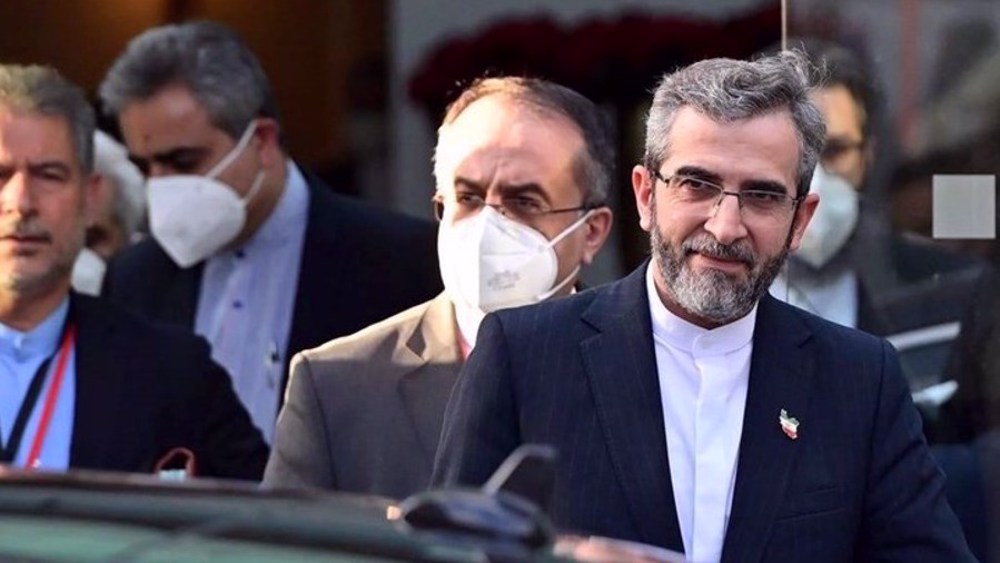

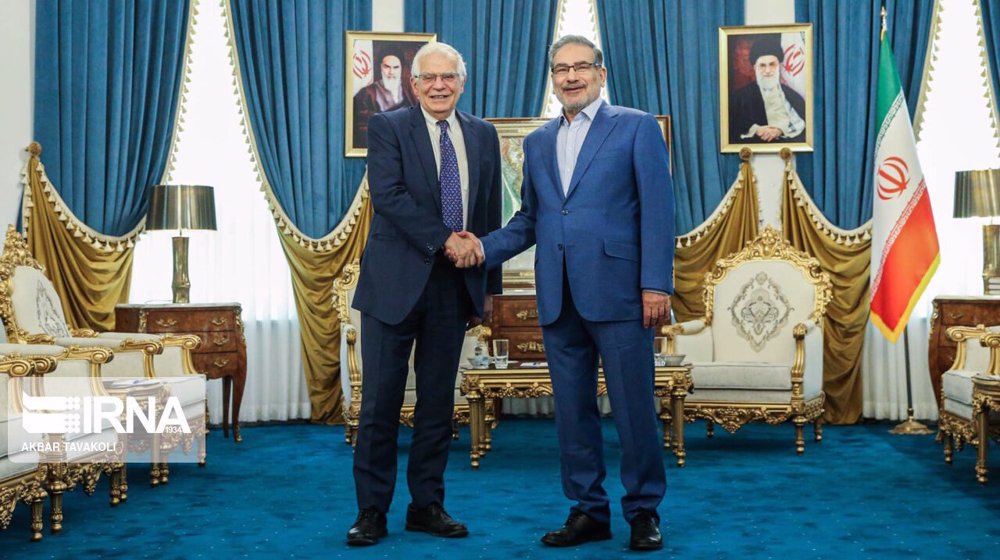
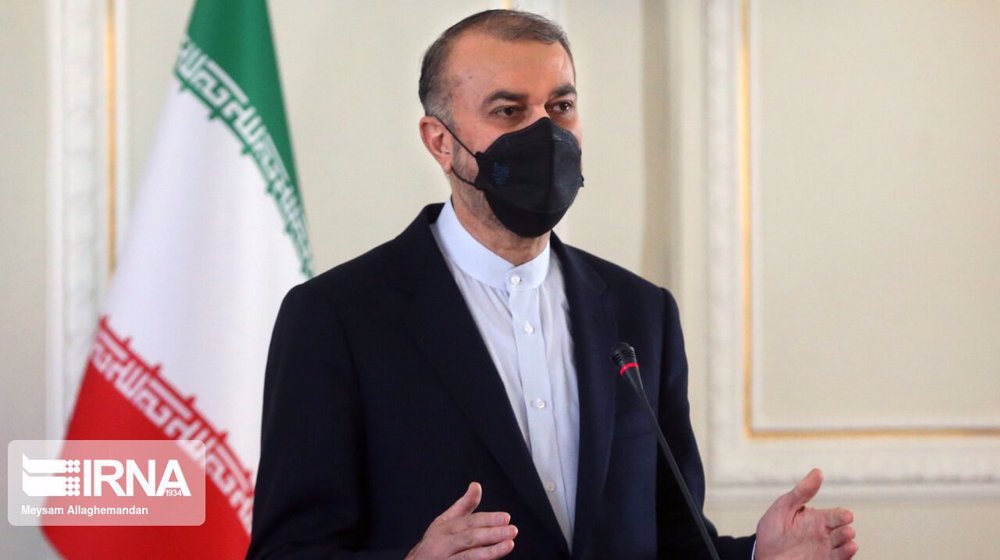
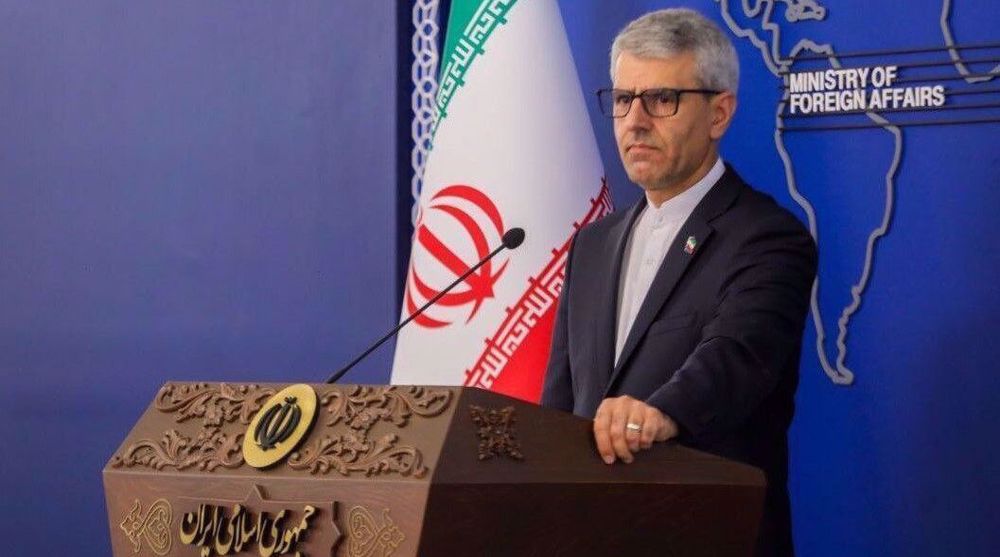





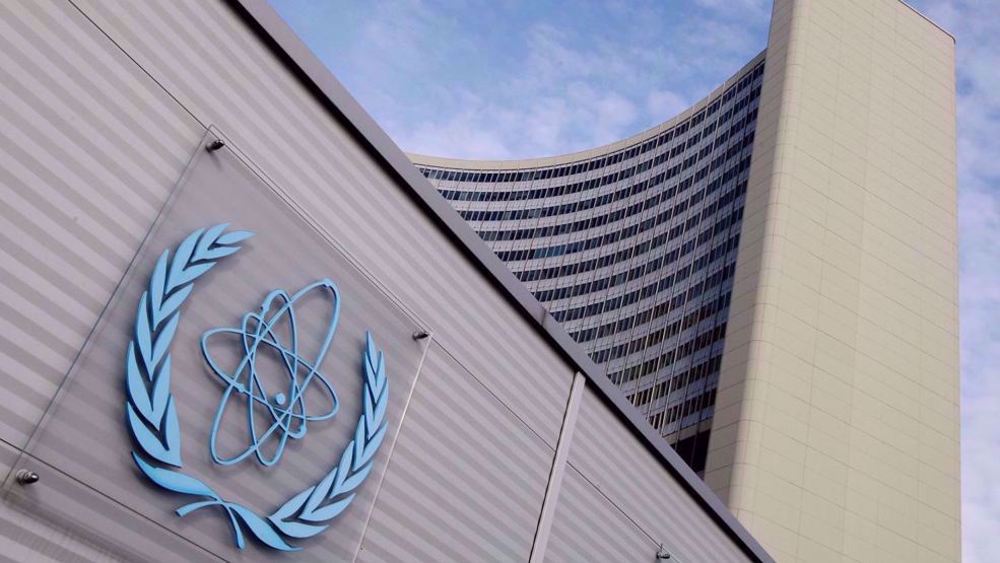
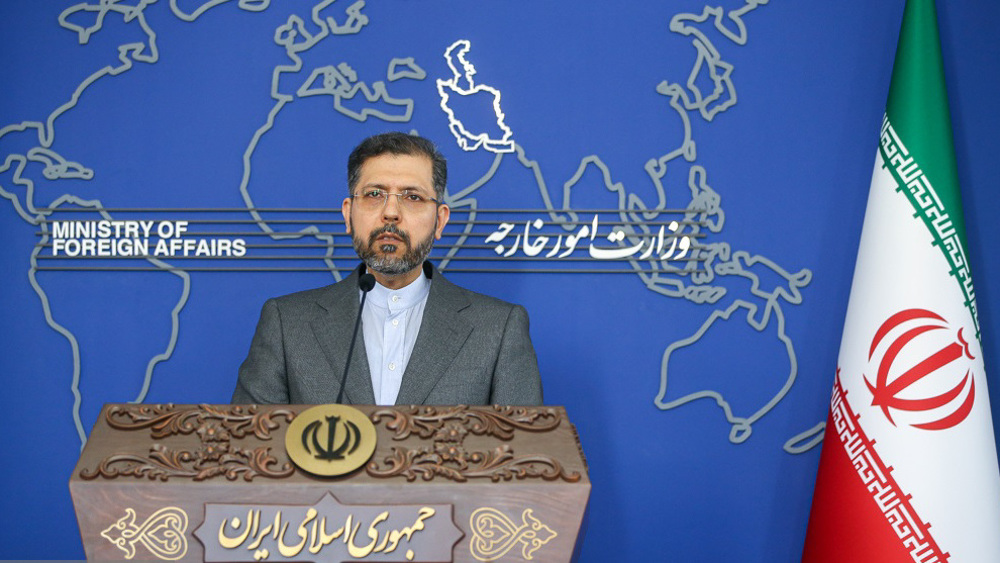
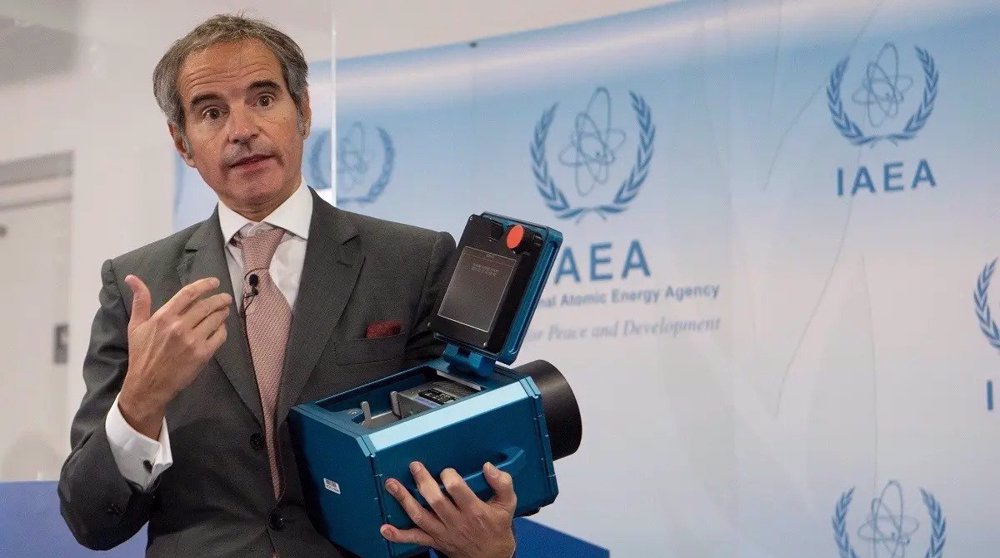
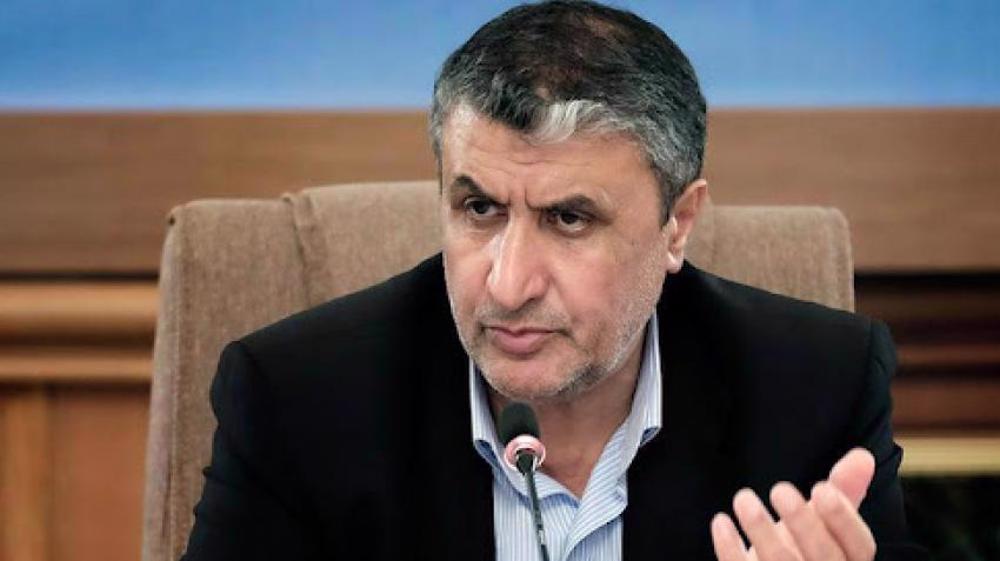
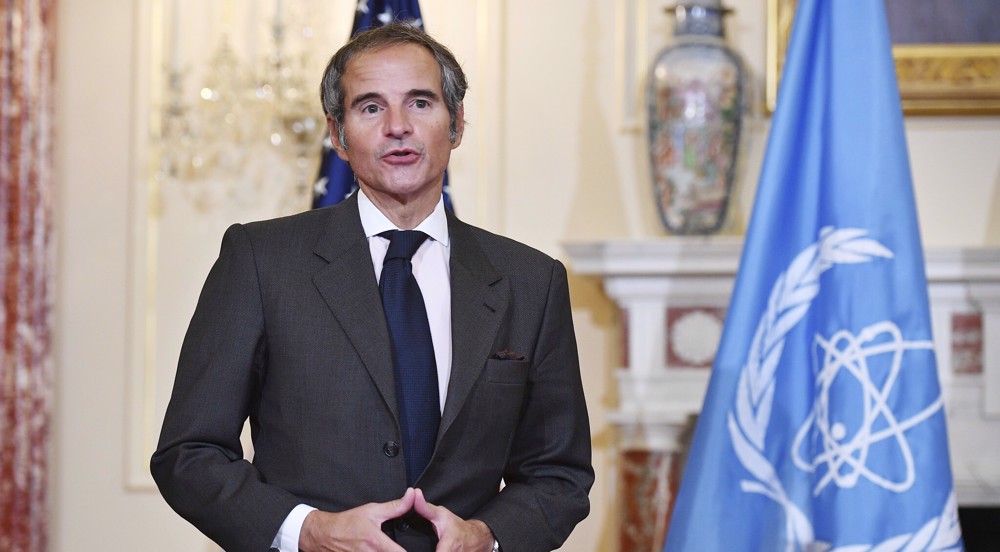
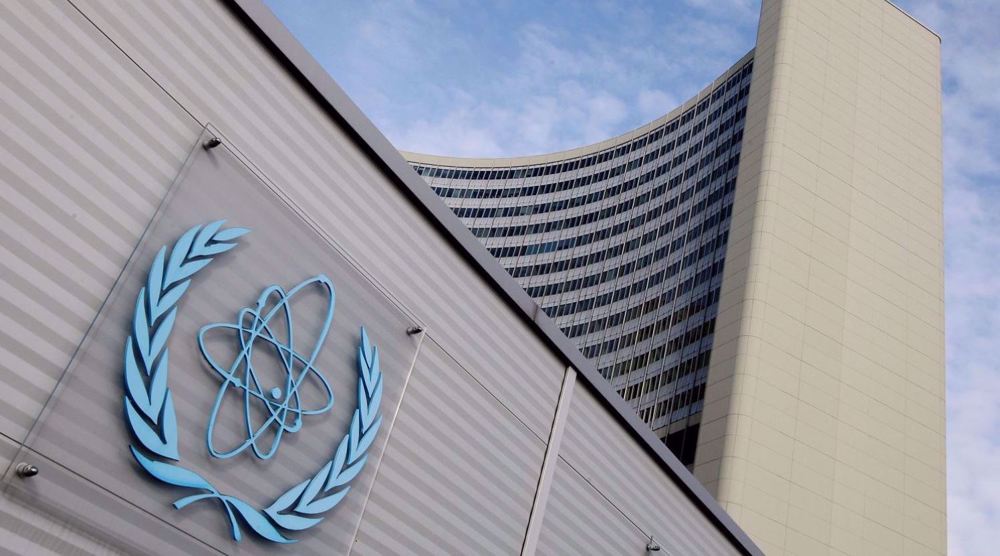
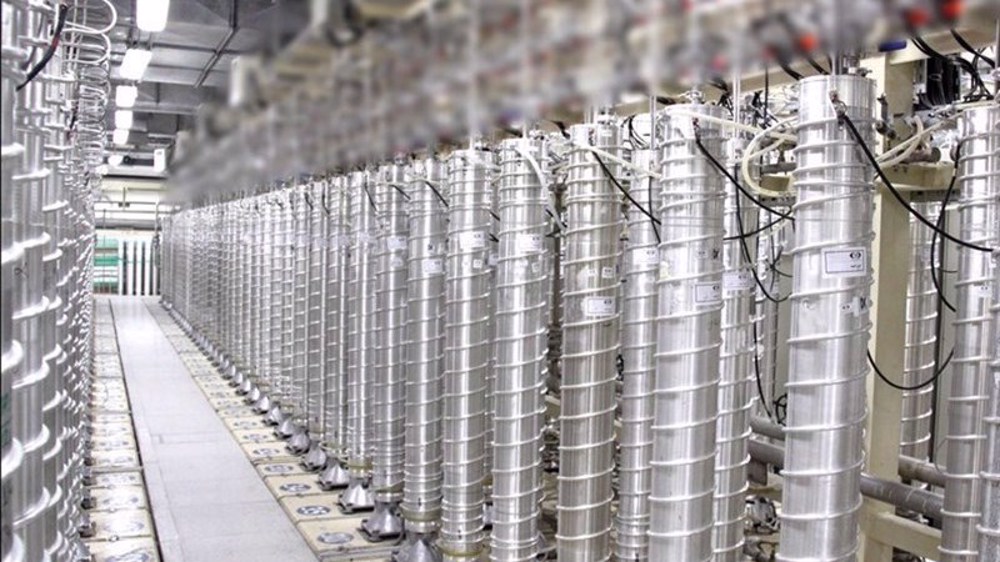

 This makes it easy to access the Press TV website
This makes it easy to access the Press TV website